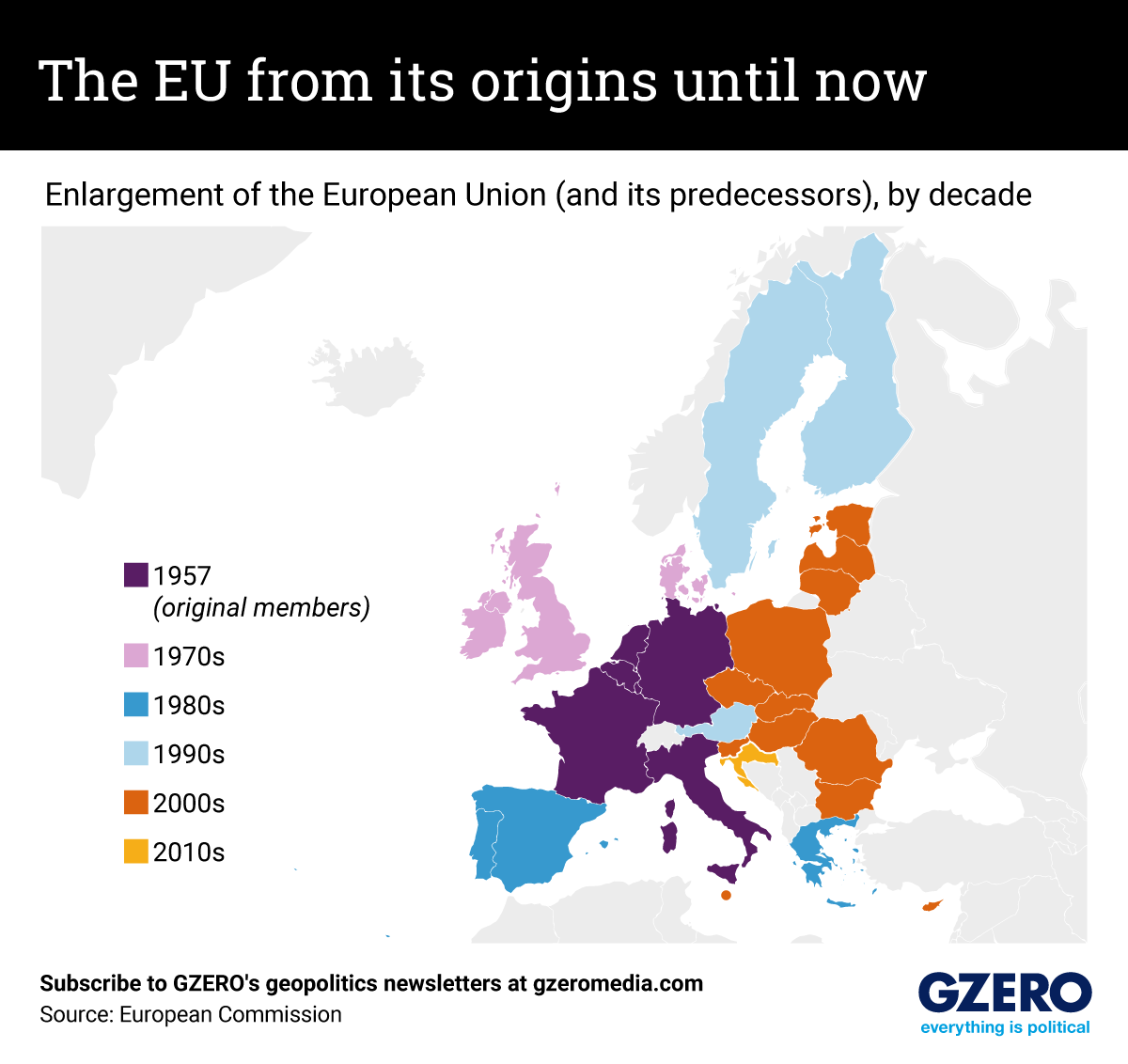July 02, 2023
It’s been 10 years since the world’s largest economic bloc, the European Union, last expanded, admitting Croatia in July 2013. Amid the perennial challenges of getting more than two dozen countries to agree on common policies, and the constant wrangling between national capitals and Brussels over issues like budgets, immigration, or sanctions, it’s easy to forget that the EU, for all its faults, has anchored the longest period of relative peace in Western Europe since the Roman Empire.
How has it grown over that time? The 27-member bloc began in the 1950s as an economic grouping of six Western European countries, and from the 1970s onwards it expanded. The 1990s saw the creation of a single market, common currency, and visa-free travel, while the 2000s saw the Union’s biggest enlargement to date: a dozen countries, all but two of them from the former Soviet bloc. Only one country has ever left the EU, of course, but you know that story.
Currently, accession negotiations are farthest along with Serbia and Montenegro, though there have been calls to accelerate talks with Ukraine as a bulwark against future Russian encroachment. Here is a map showing when, and where, the EU has expanded over the years.
More For You
People in support of former South Korean President Yoon Suk Yeol rally near Seoul Central District Court in Seoul on Feb. 19, 2026. The court sentenced him to life imprisonment the same day for leading an insurrection with his short-lived declaration of martial law in December 2024.
Kyodo
65: The age of former South Korean President Yoon Suk Yeol, who was sentenced to life in prison on Thursday after being found guilty of plotting an insurrection when he declared martial law in 2024.
Most Popular
In an era when geopolitics can feel overwhelming and remote, sometimes the best messengers are made of felt and foam.
Hungarian Prime Minister Viktor Orban holds an international press conference in Budapest, Hungary, January 5, 2026.
REUTERS/Bernadett Szabo/File Photo
The Hungarian election is off to the races, and nationalist Prime Minister Viktor Orbán is facing his most serious challenger in 16 years.
How people in G7 and BRICS countries think their policies will effect future generations.
Eileen Zhang
Does skepticism rule the day in politics? Public opinion data collected as part of the Munich Security Conference’s annual report found that large shares of respondents in G7 and several BRICS countries believed their governments’ policies would leave future generations worse off.
© 2025 GZERO Media. All Rights Reserved | A Eurasia Group media company.
